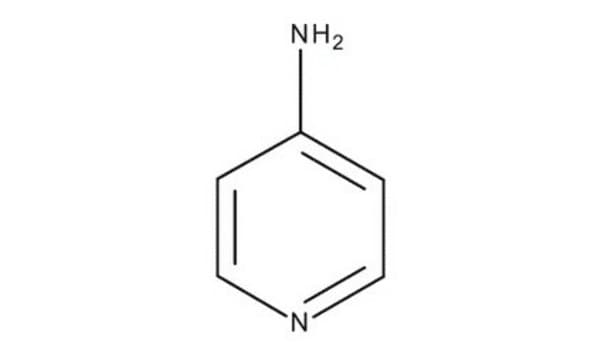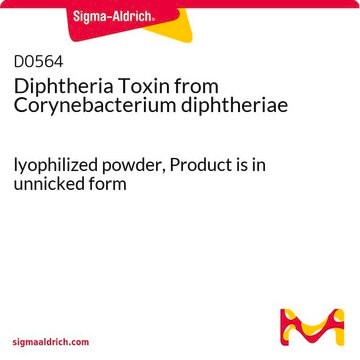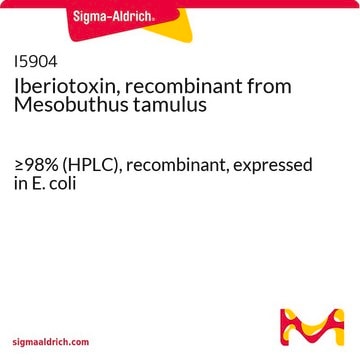275875
4-Aminopyridine
≥99%
Synonyme(s) :
Fampridine
About This Item
Produits recommandés
Niveau de qualité
Pureté
≥99%
Forme
solid
Point d'ébullition
273 °C (lit.)
Pf
155-158 °C (lit.)
Solubilité
DMF: soluble(lit.)
DMSO: soluble(lit.)
THF: soluble(lit.)
acetone: soluble(lit.)
acetonitrile: soluble(lit.)
ethanol: soluble(lit.)
isopropanol: soluble(lit.)
methanol: soluble(lit.)
water: soluble(lit.)
Chaîne SMILES
Nc1ccncc1
InChI
1S/C5H6N2/c6-5-1-3-7-4-2-5/h1-4H,(H2,6,7)
Clé InChI
NUKYPUAOHBNCPY-UHFFFAOYSA-N
Informations sur le gène
human ... KCNA1(3736) , KCNA10(3744) , KCNA2(3737) , KCNA3(3738) , KCNA4(3739) , KCNA5(3741) , KCNA6(3742) , KCNA7(3743) , KCNB1(3745) , KCNB2(9312) , KCNC1(3746) , KCNC2(3747) , KCNC3(3748) , KCNC4(3749) , KCND1(3750) , KCND2(3751) , KCND3(3752) , KCNF1(3754) , KCNG1(3755) , KCNG2(26251) , KCNG3(170850) , KCNG4(93107) , KCNH1(3756) , KCNH2(3757) , KCNH3(23416) , KCNH4(23415) , KCNH5(27133) , KCNH6(81033) , KCNH7(90134) , KCNH8(131096) , KCNQ1(3784) , KCNQ2(3785) , KCNQ3(3786) , KCNQ4(9132) , KCNQ5(56479) , KCNS1(3787) , KCNS2(3788) , KCNS3(3790) , KCNV1(27012) , KCNV2(169522)
mouse ... Kcna3(16491)
rat ... Grin2a(24409)
Vous recherchez des produits similaires ? Visite Guide de comparaison des produits
Catégories apparentées
Description générale
Application
- A reactant to prepare pharmacologically important 4-amino-N-pyridin-4-yl-butyramide hydrochloride.
- A reactant to prepare cinnamic acid derivatives as potent cholinesterase inhibitors.
- A starting material to prepare aza analogs of batracylin, a topoisomerase II inhibitor.
Mention d'avertissement
Danger
Mentions de danger
Classification des risques
Acute Tox. 2 Oral - Acute Tox. 3 Dermal - Acute Tox. 3 Inhalation - Aquatic Chronic 2 - Eye Dam. 1 - Skin Corr. 1B
Code de la classe de stockage
6.1A - Combustible acute toxic Cat. 1 and 2 / very toxic hazardous materials
Classe de danger pour l'eau (WGK)
WGK 3
Point d'éclair (°F)
312.8 °F
Point d'éclair (°C)
156 °C
Équipement de protection individuelle
dust mask type N95 (US), Eyeshields, Faceshields, Gloves, type P2 (EN 143) respirator cartridges
Faites votre choix parmi les versions les plus récentes :
Déjà en possession de ce produit ?
Retrouvez la documentation relative aux produits que vous avez récemment achetés dans la Bibliothèque de documents.
Les clients ont également consulté
Notre équipe de scientifiques dispose d'une expérience dans tous les secteurs de la recherche, notamment en sciences de la vie, science des matériaux, synthèse chimique, chromatographie, analyse et dans de nombreux autres domaines..
Contacter notre Service technique














